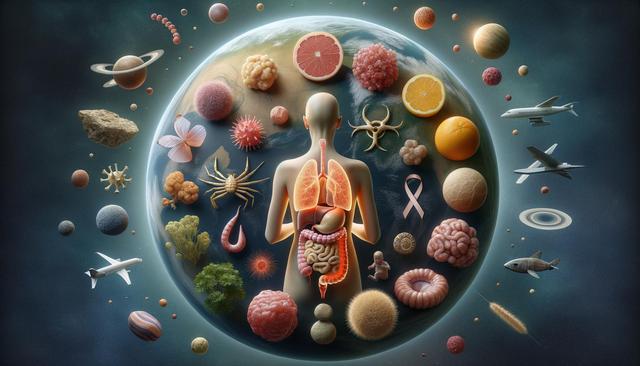Unexplained Weight Changes
One of the early signs your body might show before a cancer diagnosis is an unexplained change in weight. While many people associate sudden weight loss with stress or dietary changes, it can also be a symptom of various cancer types. Certain cancers, particularly those affecting the stomach, pancreas, or lungs, can interfere with your body’s ability to absorb nutrients, leading to unexpected weight changes.
If you find yourself losing weight without a change in diet or increased physical activity, it may be time to consult a healthcare provider. On the other hand, some cancers can cause weight gain due to fluid retention or hormonal imbalances. Monitoring your weight and taking note of any significant fluctuations can support early cancer detection efforts. Keep in mind that weight change alone is not a definitive sign, but when combined with other symptoms, it becomes more relevant.
Common related symptoms include:
- Loss of appetite
- Persistent fatigue
- Swelling in the abdomen or limbs
Understanding how your body normally behaves and recognizing when something feels off can help you act sooner.
Persistent Fatigue and Weakness
Fatigue is a common part of life, especially in today’s fast-paced world. However, fatigue that doesn’t improve with rest or sleep could be an early sign of cancer. This type of fatigue is different—it feels more intense and long-lasting. Cancer-related fatigue can result from the cancer itself or from the body’s response to the disease.
For example, leukemia and other blood-related cancers can cause a shortage of healthy red blood cells, leading to a constant feeling of tiredness. Similarly, cancers that cause internal bleeding can reduce oxygen delivery to tissues, contributing to fatigue. If you are experiencing prolonged tiredness that disrupts your daily life, it is worthwhile to discuss this with a healthcare professional.
Be on the lookout for:
- Difficulty concentrating
- Shortness of breath during routine activities
- Unexplained drowsiness
While fatigue can result from various non-cancerous causes like anemia or thyroid disorders, it remains an important signal to investigate further when persistent.
Changes in Skin Appearance
The skin can be a window into your internal health, and changes in its appearance may indicate early cancer signs. This includes more than just skin cancer—internal cancers can also produce visible skin changes. For instance, a yellowing of the skin and eyes (jaundice) might suggest liver issues, while darkened patches or unexplained rashes could be linked to other serious conditions.
A mole that changes in size, shape, or color should be evaluated, as it might be a warning sign. Additionally, persistent itching, new growths, or non-healing sores should not be ignored. Paying attention to your skin and reporting abnormalities can be a proactive step in early cancer detection.
Look for:
- New moles or growths
- Changes in existing moles
- Skin discoloration or texture changes
Early recognition and timely consultation can lead to more accurate diagnoses and potentially more effective treatment options.
Unusual Bleeding or Discharge
Another important sign to watch for is bleeding or discharge that’s unusual for your body. This can vary greatly depending on the type of cancer. For example, blood in the stool might be a sign of colon cancer, while coughing up blood could be associated with lung cancer. In women, abnormal vaginal bleeding could signal a gynecological cancer, such as cervical or uterine cancer.
While occasional spotting or minor bleeding might not be alarming, persistent or heavy episodes should prompt medical evaluation. Discharges that are foul-smelling, colored, or accompanied by pain may also be signs of concern. These symptoms can often be mistaken for infections or minor issues, but paying close attention to frequency and context is crucial.
Key signs to note:
- Blood in urine or stool
- Persistent coughing with blood
- Unusual vaginal or nipple discharge
Being observant about these changes and seeking medical advice can help in identifying potential issues early on.
Persistent Pain or Discomfort
Ongoing pain that does not resolve with usual care can be a sign that something more serious is happening. While pain is a common symptom for many conditions, persistent discomfort that has no clear cause should not be ignored. For instance, constant back pain might be linked to cancers of the colon, ovaries, or even the spine. Similarly, headaches that do not respond to standard treatments could be an early sign of a brain tumor.
It’s important to distinguish between occasional aches and persistent pain that interferes with daily life. If you’re using pain relief regularly without results, or if the pain intensifies over time, a professional evaluation is warranted. Pain can be a late or early symptom depending on the cancer type, so early consultation is beneficial.
Common areas where unexplained pain might appear:
- Back or lower abdomen
- Head or neck
- Bones or joints
Listening to your body and tracking patterns can be instrumental in identifying issues before they progress.
Conclusion: Stay Aware and Act Early
Recognizing early cancer signs plays a vital role in improving health outcomes. While these symptoms can be linked to various non-cancerous conditions, their persistence or combination should prompt timely medical consultation. Weight changes, fatigue, skin abnormalities, unusual bleeding, and persistent pain are among the key indicators to watch for.
Staying informed about common symptoms and understanding available cancer detection methods allows individuals to take proactive steps in their health journey. Regular check-ups, awareness of family history, and open communication with healthcare providers are essential components of early cancer detection strategies. By paying attention to how your body feels and reacts, you give yourself the best chance at addressing potential issues early and improving the likelihood of successful treatment.


